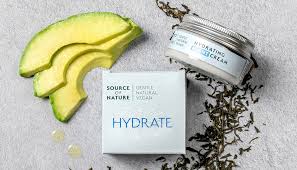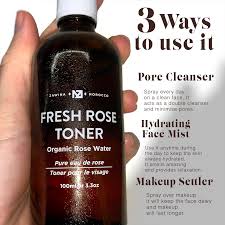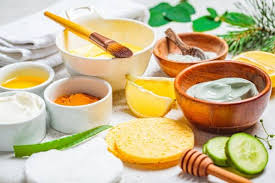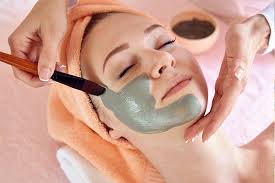In a world increasingly filled with synthetic products and artificial ingredients, many are turning back to nature to find effective and gentle solutions for their all-natural skin care regimen needs. An all-natural skincare regimen can offer numerous benefits, including fewer side effects, more sustainable practices, and a closer connection to the environment. This article explores the essential steps of an all-natural skincare regimen and highlights the benefits of using natural ingredients.
Table of Contents
Understanding the Benefits of All-Natural Skin Care

Before diving into the specifics of an all-natural skincare regimen, it’s important to understand why natural ingredients are beneficial for your skin. Here are some key advantages:
- Fewer Chemicals and Toxins: Natural skincare products are free from synthetic chemicals, which can irritate the skin and cause long-term health issues. Ingredients like parabens, sulfates, and phthalates are commonly found in conventional skincare products and have been linked to various health concerns.
- Nutrient-Rich: Natural ingredients are often rich in vitamins, minerals, and antioxidants that nourish and protect the skin. For example, ingredients like aloe vera, coconut oil, and shea butter provide essential nutrients that support skin health.
- Gentle on the Skin: Many natural ingredients are known for their soothing properties. For instance, chamomile and calendula can help calm irritated skin, making them ideal for those with sensitive skin types.
- Eco-Friendly: Natural skincare products are often more environmentally friendly, using sustainable sourcing practices and biodegradable packaging. This reduces the overall environmental impact.
- Holistic Approach: Natural skincare embraces a holistic approach, considering not just the external appearance of the skin but also overall well-being. This can include factors like diet, lifestyle, and mental health.

Building Your All-Natural Skin Care Regimen
Creating an all-natural skincare regimen involves several key steps: cleansing, exfoliating, toning, moisturizing, and protecting. Let’s explore each step in detail:
1. Cleansing All-Natural Skin Care
Cleansing is the foundation of any skincare routine. It removes dirt, oil, and impurities from the skin, preventing clogged pores and breakouts. Here are some natural cleansers to consider:
- Honey: Honey is a natural humectant, meaning it helps retain moisture while cleansing the skin. Its antibacterial properties make it effective for acne-prone skin.
- Oil Cleansing: Using oils like jojoba, almond, or olive oil can effectively dissolve dirt and makeup without stripping the skin of its natural oils.
- Aloe Vera Gel: Aloe vera gel can be used as a gentle cleanser, especially for sensitive skin. It soothes and hydrates while cleansing.
2. Exfoliating
Exfoliation removes dead skin cells, revealing a brighter and smoother complexion. However, it’s important to use gentle, natural exfoliants to avoid damaging the skin. Some natural exfoliants include:
- Sugar Scrub: A mixture of sugar and coconut oil makes an effective and gentle scrub. Sugar’s fine granules exfoliate without being too abrasive.
- Oatmeal: Ground oatmeal mixed with water or yogurt creates a soothing exfoliant suitable for sensitive skin.
- Coffee Grounds: Used coffee grounds can be repurposed as an exfoliant. They help improve circulation and reduce the appearance of cellulite.

3. Toning
Toners help balance the skin’s pH, tighten pores, and remove any remaining impurities after cleansing. Natural toners include:
- Witch Hazel: This plant extract is a natural astringent that tightens pores and reduces inflammation.
- Rose Water: Rose water is soothing, hydrating, and has mild astringent properties. It’s suitable for all skin types.
- Apple Cider Vinegar: Diluted apple cider vinegar helps balance the skin’s pH and has antibacterial properties. It’s best used for oily or acne-prone skin.
4. Moisturizing All-Natural Skin Care
Moisturizing is essential to keep the skin hydrated, soft, and supple. Natural moisturizers include:
- Shea Butter: Rich in vitamins A and E, shea butter deeply moisturizes and nourishes the skin. It’s particularly beneficial for dry skin.
- Coconut Oil: Coconut oil is an excellent moisturizer that also has antibacterial properties. It’s best used for dry or normal skin types.
- Jojoba Oil: Jojoba oil closely resembles the skin’s natural sebum, making it an effective moisturizer for all skin types.
5. Protecting: All-Natural Skin Care
Protecting the skin from environmental damage, particularly UV rays, is crucial. Natural options for sun protection include:
- Zinc Oxide: A mineral that provides broad-spectrum protection against UVA and UVB rays. It’s a common ingredient in natural sunscreens.
- Raspberry Seed Oil: Known for its natural SPF properties, raspberry seed oil can offer some protection against UV rays.
- Aloe Vera: While not a substitute for sunscreen, aloe vera can soothe sun-exposed skin and help prevent damage.
Additional Tips for All-Natural Skin Care
- Stay Hydrated: Drinking plenty of water is essential for maintaining healthy skin. Hydration helps flush out toxins and keeps the skin looking plump and radiant.
- Healthy Diet: A diet rich in fruits, vegetables, and healthy fats can greatly benefit your skin. Foods high in antioxidants, like berries and leafy greens, help protect the skin from damage.
- Regular Exercise: Exercise improves circulation, which helps deliver oxygen and nutrients to the skin. It also promotes the removal of toxins through sweat.
- Adequate Sleep: Quality sleep is crucial for skin repair and regeneration. Aim for 7-9 hours of sleep per night to support your skin’s health.
DIY All-Natural Skin Care Recipes
Creating your own skincare products can be a rewarding and cost-effective way to embrace an all-natural regimen. Here are a few simple recipes to get you started:
1. Honey and Oatmeal Cleanser

All-Natural Skin Care
Ingredients:
- 1 tablespoon honey
- 2 tablespoons ground oatmeal
- A few drops of water
Instructions:
- Mix honey and ground oatmeal in a bowl.
- Add a few drops of water to form a paste.
- Gently massage the mixture onto your face in circular motions.
- Rinse with warm water and pat dry.
2. Sugar and Coconut Oil Scrub
Ingredients:
- 1/2 cup granulated sugar
- 1/4 cup coconut oil
Instructions:
- Combine sugar and coconut oil in a bowl.
- Mix until you achieve a scrub-like consistency.
- Apply to your face and gently scrub in circular motions.
- Rinse with warm water and pat dry.
3. Rose Water Toner

All-Natural Skin Care
Ingredients:
- 1/2 cup distilled water
- 1/2 cup rose petals (fresh or dried)
- 1 teaspoon witch hazel (optional)
Instructions:
- Boil the distilled water and pour it over the rose petals.
- Let it steep for 30 minutes, then strain the liquid into a bottle.
- Add witch hazel if using and shake well.
- Apply to your face with a cotton pad after cleansing.

4. Shea Butter Moisturizer: All-Natural Skin Care
Ingredients:
- 1/2 cup shea butter
- 1/4 cup coconut oil
- 10 drops of essential oil (lavender, tea tree, or your choice)
Instructions:
- Melt shea butter and coconut oil in a double boiler.
- Remove from heat and let it cool slightly.
- Add essential oil and stir well.
- Pour into a jar and let it solidify at room temperature.
- Use as a daily moisturizer.
Conclusion
An all-natural skincare regimen can transform your skin by harnessing the power of nature. By choosing products free from synthetic chemicals and rich in natural nutrients, you can achieve healthy, radiant skin while supporting environmental sustainability. Remember, consistency is key, and embracing a holistic approach that includes a healthy diet, regular exercise, and adequate sleep will further enhance the benefits of your natural skincare routine. Start your journey today and discover the beauty of natural skincare!

